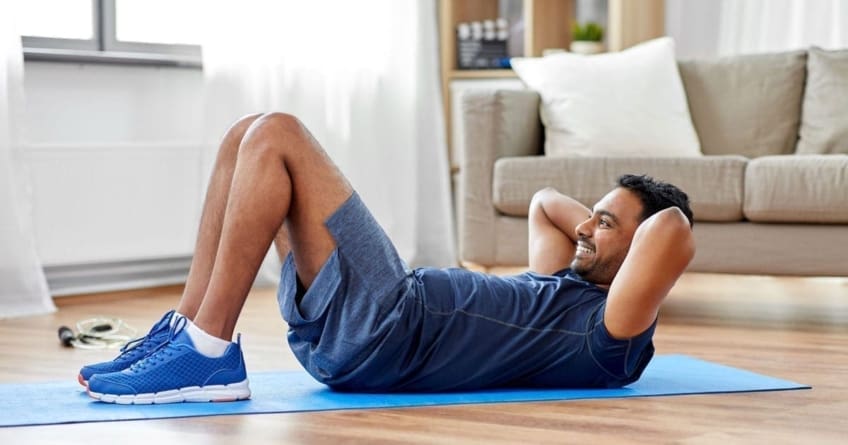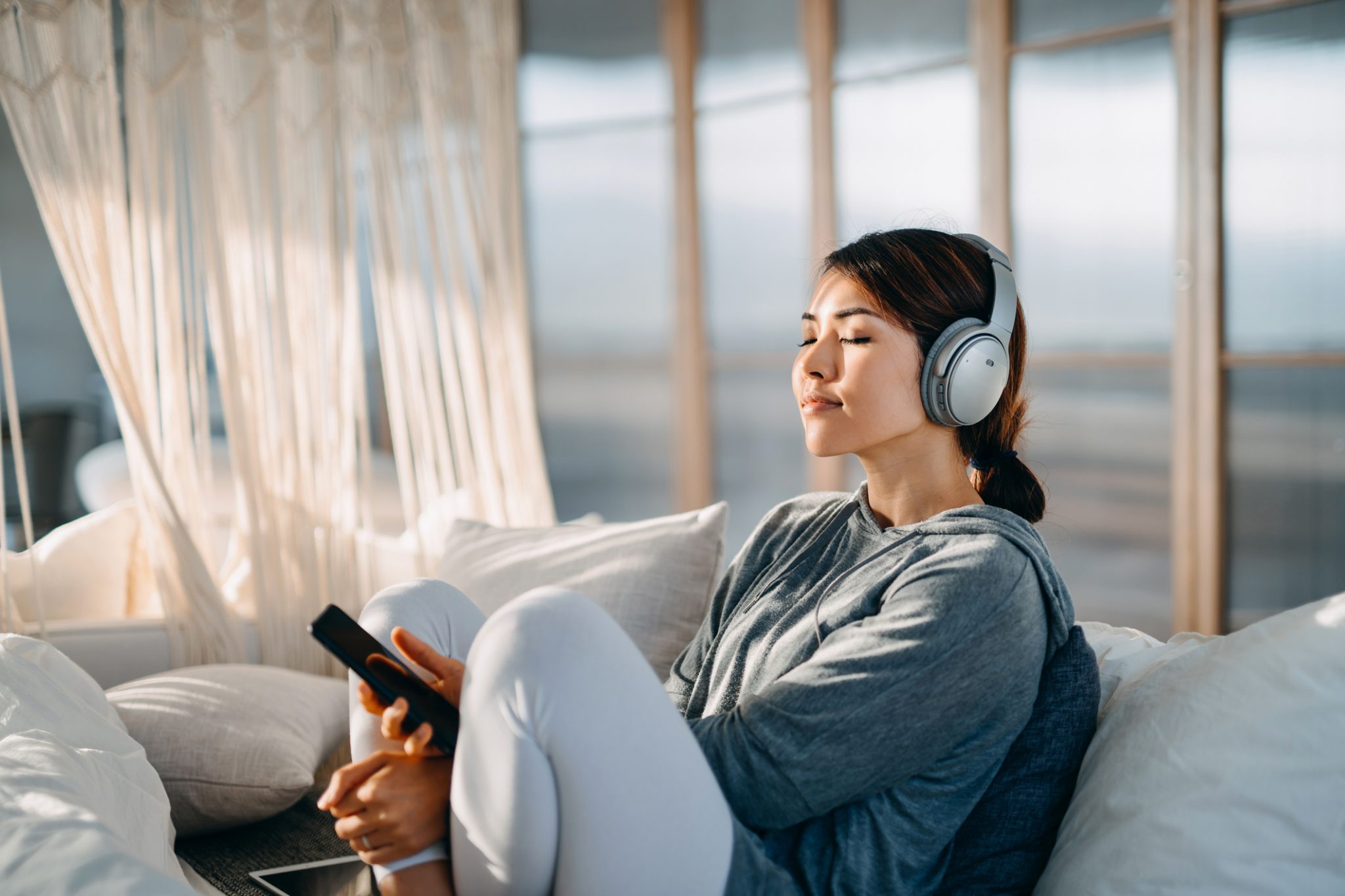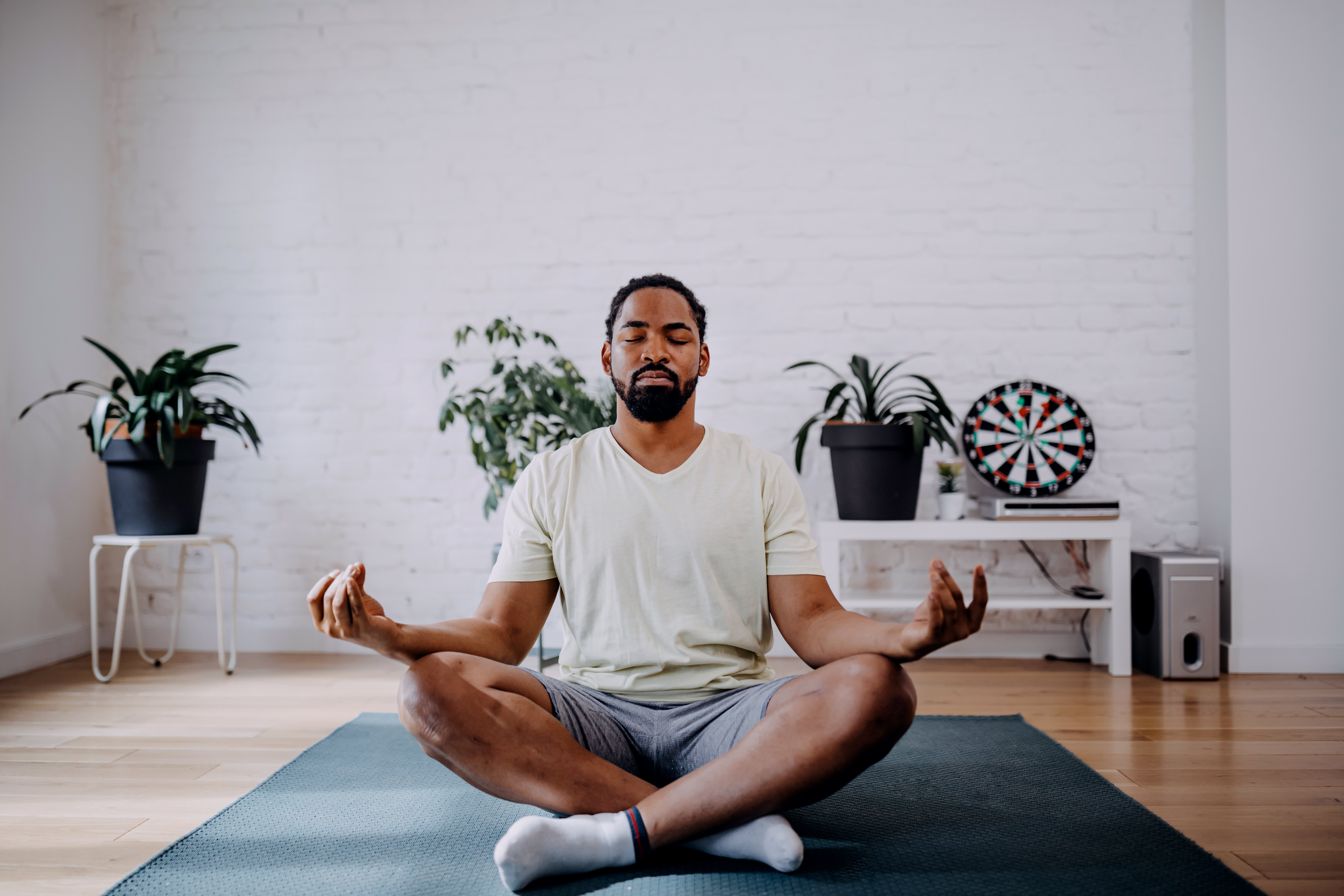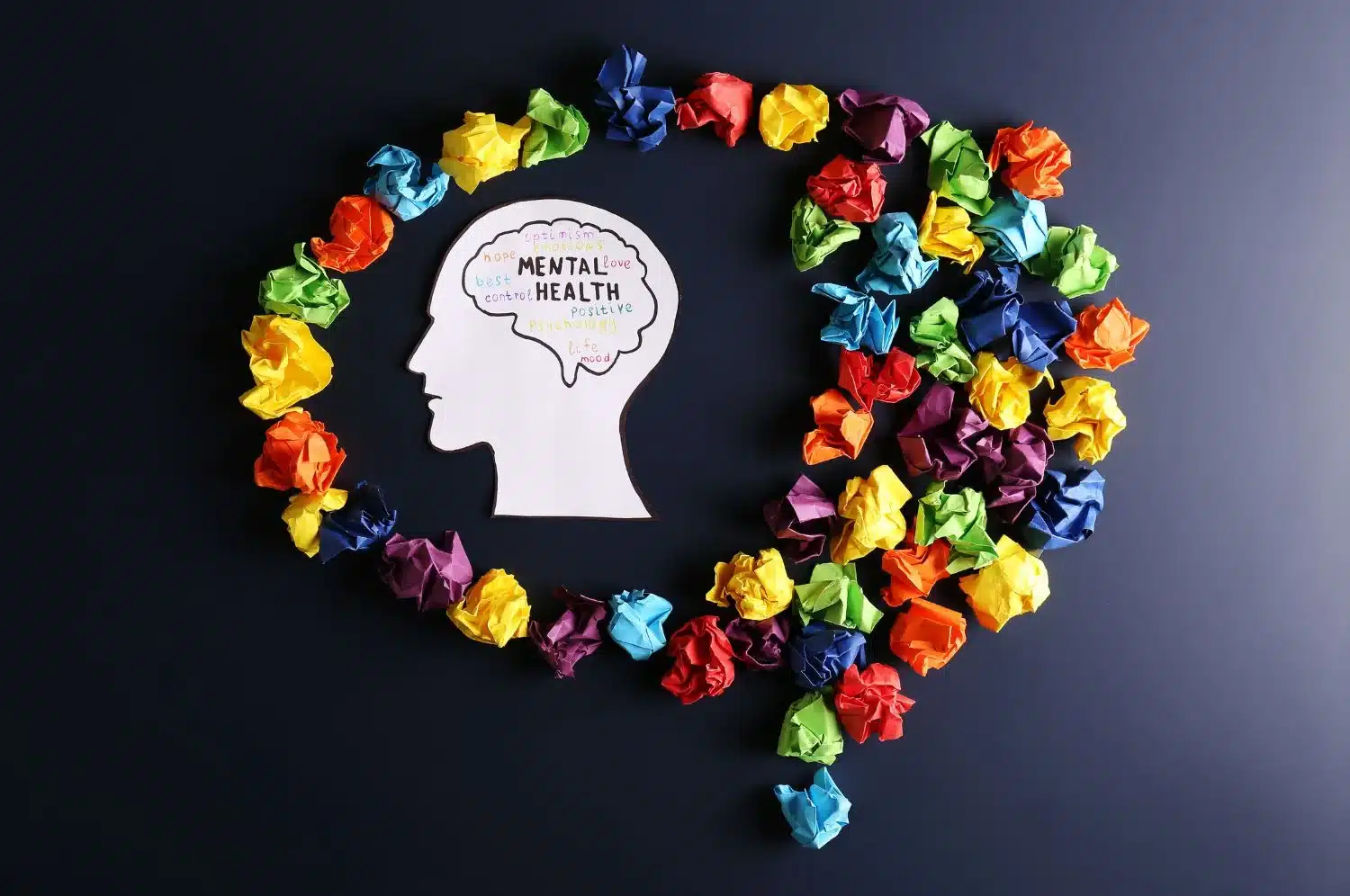Mental health is key to feeling good overall, but it’s often ignored or not well understood. The Centre for Addiction and Mental Health says one in five Americans has a mental illness each year. By 40, half of people have had a mental illness at some point. This article will show you 10 easy ways to help your mental health every day. You’ll learn how to connect with others and relax to feel better.
Key Takeaways
- Mental health is a critical component of overall well-being.
- One in five Americans experiences a mental illness each year.
- Promoting mental health awareness can improve personal and community well-being.
- Practical strategies like prioritizing social connections and practicing relaxation can boost mental health.
- Taking small, daily steps to support mental health can make a significant difference.
Prioritize Social Connections
In today’s digital world, we often forget the value of meeting people face-to-face. Phone calls and social media are good, but nothing beats the joy of spending time with people we care about. Now that COVID-19 restrictions are easing, it’s a great time to start meeting people again. This can help our mental health a lot.
The Importance of Face-to-Face Interactions
Having social connections and face-to-face interactions is key for our mental health. Being with others in person makes us feel less alone and more supported. This is crucial for our emotional well-being. People with strong social ties feel less stressed, anxious, and depressed. This leads to a happier life.
To enjoy the benefits of meeting people in person, try these ideas:
- Schedule regular meet-ups with close friends and family members
- Join a local club or community group that aligns with your interests
- Volunteer for a cause you care about to connect with like-minded individuals
- Attend local events or gatherings to expand your social circle
| Benefits of Face-to-Face Interactions | Benefits of Virtual Interactions |
|---|---|
| Reduced feelings of isolation and loneliness | Ability to connect with loved ones across distances |
| Improved mood and overall emotional well-being | Convenient and accessible communication |
| Strengthened sense of belonging and community | Opportunity to maintain relationships during times of social distancing |
“The greatest weapon against stress is our ability to choose one thought over another.” – William James
By focusing on social connections and face-to-face interactions, we can boost our mental health. In a world that loves digital chats, it’s important to remember the value of meeting people in person. These interactions can greatly improve our lives.
Stay Physically Active

Being active is great for your mental health and well-being. Physical activity can really help with how we feel, think, and overall happiness.
Exercise makes us feel good by releasing endorphins. These are chemicals in our brain that make us happy. Even a simple daily walk can help reduce stress, improve mood, and help us sleep and focus better.
For the best mental health, try different kinds of exercises that challenge you. Yoga, tai chi, or dance are good choices. They mix physical movement with being mindful and relaxed.
“Physical activity is not only a great way to improve your physical health but also your mental well-being. It’s a powerful tool in the journey towards better mental health.”
It doesn’t matter if you’re fit or what you like to do. Adding regular physical activity to your day can really help your mental health benefits. So, put on your sneakers, get moving, and see how an active life can change you.
Mental Health Awareness: Seek Support

Getting help for your mental health is key to feeling good overall. Talking to someone you trust can calm your nerves and ease stress. Sharing your feelings can also help reduce the stigma around mental health. It connects you to helpful strategies and resources.
The Benefits of Talking to Others
Talking to others can open your mind to new ideas. It’s vital that both sides feel safe to share and listen. If your issues are too much, think about seeing a professional.
Talking to friends, family, or mental health experts can make you feel supported. It gives you a sense of community and offers practical advice. This can help you seek mental health support and reduce stress.
“Talking to others about your mental health can be a powerful tool for personal growth and healing.”
Talking about your mental health makes you feel less isolated. It makes your experiences seem more normal and creates a safe space for sharing. By talking openly, we can fight the stigma around mental health together.
Your mental health is as important as your physical health. Don’t be shy to ask for support when you need it. Your health is important, and there are many resources to help you.
Practice Relaxation Techniques

Keeping our minds healthy is key in today’s busy, stressful life. One great way to fight stress and find calm is by using relaxation techniques. Activities like yoga, mindfulness, meditation, and deep breathing can cut down on anxiety, help you focus better, and bring peace inside you.
Yoga and mindfulness are top choices for relaxation that many people love. Yoga mixes physical moves, breathing, and meditation to help you relax and balance your body and mind. Mindfulness means being fully in the moment, watching your thoughts and feelings without judging them. This can clear your mind and calm you down.
Meditation is also a strong way to relax and reduce stress. It’s about sitting quietly and focusing on your breath to quiet your mind and stop overthinking. Meditation has many benefits, like better focus, managing emotions, and feeling better overall.
Deep breathing exercises are easy but powerful for relaxation. By breathing deeply and focusing on the air moving in and out, you turn on your body’s “rest and digest” system. This lowers your heart rate, blood pressure, and stress, making you feel calm and relaxed.
Adding these relaxation techniques to your daily life can really change your mental health. By making time for your well-being and finding calm, you’ll become more resilient, focused, and happy with life.
“Meditation and other mindfulness practices don’t change the world. They change you. The change in you changes everything.”
Also Read : How Can A Career In Health Information Management Benefit You?
Conclusion
Improving your mental health can be easy with simple daily habits. Connect with others, stay active, ask for help when you need it, and try relaxation techniques. These steps can help you feel better and more resilient.
Your mental health is as important as your physical health. Putting it first can change your life for the better. Small actions every day can greatly improve your mental and emotional health.
By focusing on mental health daily, you help yourself and others. Let’s work together for a society that cares for everyone’s overall health. This way, we can build a brighter, stronger future for all.
FAQs
Q: What is the significance of mental health awareness month?
A: Mental health awareness month plays a crucial role in raising awareness about mental health conditions, promoting the importance of mental health, and encouraging individuals to seek support for their mental health issues. It helps to destigmatize mental illness and fosters open conversations about living with mental health challenges.
Q: How can I use the mental health awareness month toolkit?
A: The month toolkit is designed to provide resources and strategies for individuals and organizations to promote mental health awareness during mental health awareness month. It includes materials to educate others, ideas for community events, and guidance on how to engage with local health services.
Q: What are some effective ways to raise awareness during mental health awareness month 2024?
A: Effective ways to raise awareness include hosting community events, sharing educational materials from organizations like SAMHSA and NAMI, utilizing social media campaigns, and facilitating discussions about mental health issues among friends and family.
Q: Where can I find SAMHSA resources for mental health support?
A: SAMHSA resources can be accessed through their official website, which offers information on mental health conditions, treatment options, and various support services available for individuals struggling with their mental health.
Q: What is the importance of mental health in overall wellness?
A: The importance of mental health cannot be overstated; it significantly impacts physical health, relationships, and daily functioning. Prioritizing mental health and wellness contributes to a healthier, more fulfilling life and helps individuals manage stress and cope with challenges effectively.
Q: How does the 988 hotline assist individuals in a mental health crisis?
A: The 988 hotline provides 24 hours a day support for individuals experiencing a mental health crisis. It connects callers with trained counselors who can offer immediate assistance, guidance, and resources for coping with mental health issues.
Q: What resources are available for maternal mental health awareness?
A: Resources for maternal mental health awareness can be found through organizations like Mental Health America and SAMHSA. They provide information on common maternal mental health conditions, coping strategies, and support for new mothers living with mental health challenges.
Q: How can I celebrate recovery from mental illness during mental health awareness month?
A: Celebrating recovery from mental illness can involve sharing personal stories, acknowledging progress, and participating in community events that highlight positive mental health outcomes. Engaging with support groups and mental health services can also foster a sense of community and encouragement.
Q: What is the role of mental health in the lives of older adults?
A: The role of mental health is vital for older adults as they face unique challenges such as isolation, health issues, and loss. Promoting mental health awareness in this demographic can help address these challenges and improve overall quality of life through access to mental health services and support systems.





